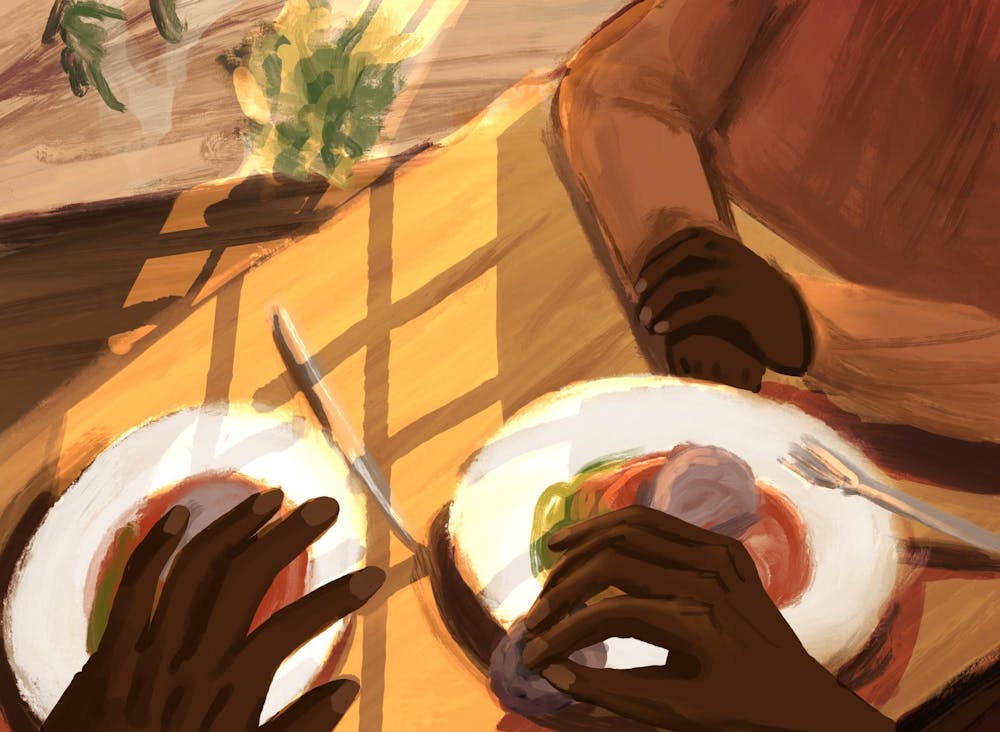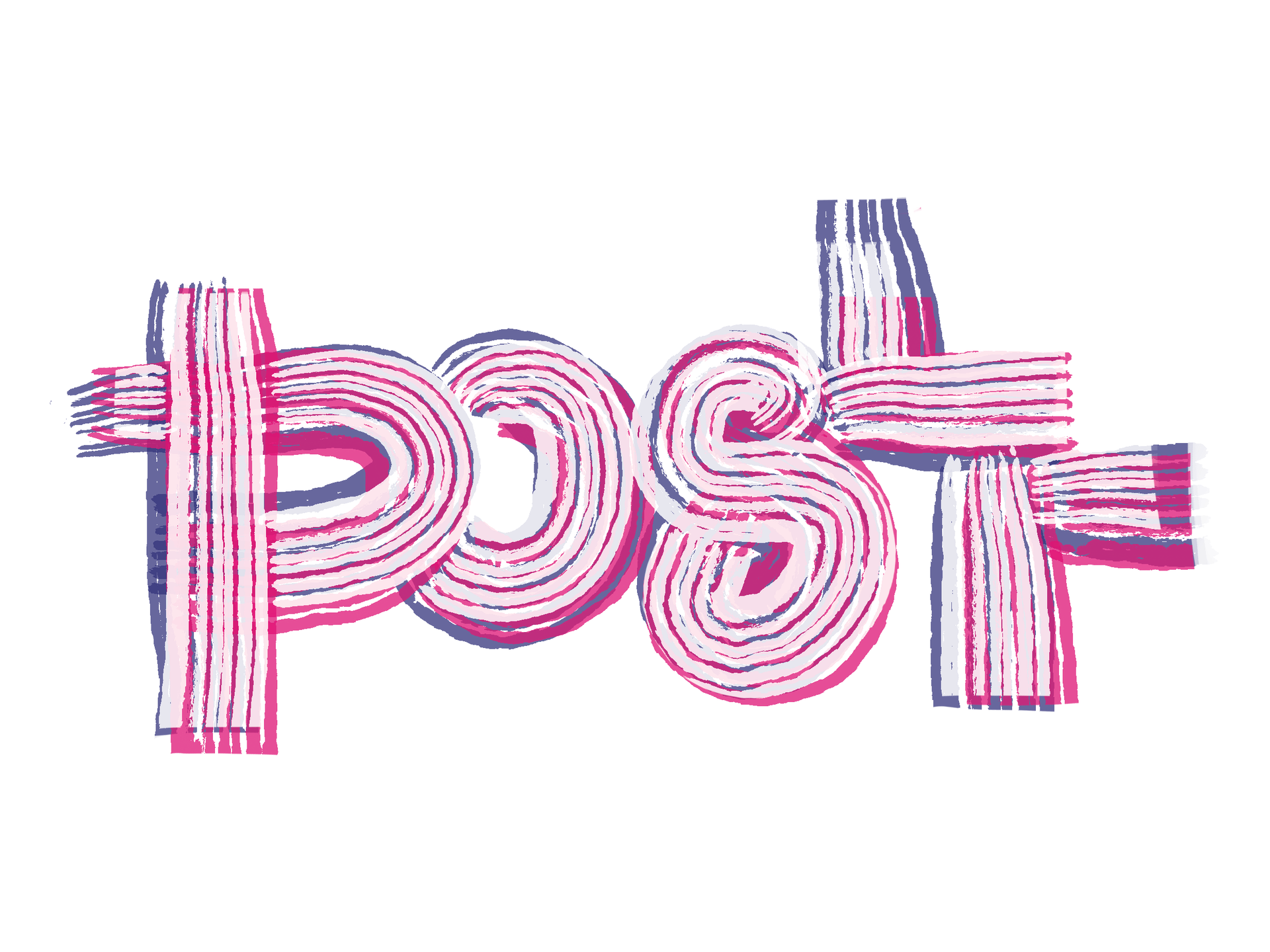“And the winner of poetry interpretation is…”
I sat on the edge of my seat, waiting for the results that would affirm or dismantle my budding eighth-grade ego. “...Ayoola Fadahunsi.”
When my name was announced, I hurried to the stage, immense glee consuming me. Although the powerful, award-winning poem I had presented about writing through one’s pain and grief was merely a performance, unbeknownst to me, it would soon become my reality.
Poetry interpretation, a category in speech and debate, is a competitive speaking style where the speaker utilizes a published poem to tell a story through emotive hand gestures, intense tonal inflections, and the like. The National Speech and Debate Association describes the interpretation of literature as “bringing words to life.”
From the age of 12, I have devoted countless hours to public speaking, finding other’s tales and sharing them in expressive ways. Through speech, I have restructured narratives from various speakers into a collective story. But an impersonal story was all that it was to me at the age of 12.
When preparing for my speech competition, I stumbled upon spoken-word poetry after unsuccessfully reading through poems from books. Spoken words such as “Table Games,” “If I Was a Love Poet,” “Ode to the Women on Long Island,” and “Hide Your Shea Butter” filled my computer screen and transported me into different worlds. From the comfort of my bed, I became a heartbroken partner, a woman from Long Island, Shakespeare’s summer’s day, and an undercover detective. I was enamored by the power of words. Poets like Sarah Kay and Rudy Francisco knew how to wield words like swords and shields, piercing the veil of my childlike ignorance and exposing me to new realities.
The poem that stuck with me, though, was “Cancer and Poetry Don’t Mix” by Mickayla Jade Noel. The vulnerability of Noel’s poem and her ability to reflect the humor and light of her grandmother awed me. In the poem, her grandmother’s cancer diagnosis is “announced politely over a cup of sweet tea,” and I could not understand why Noel included this in her poem. Cancer is aggressive and deadly, polite did not seem to fit, but I performed it nevertheless, oblivious to the nuances of life.
I learned of my aunt’s breast cancer diagnosis in my dimly lit dining room, surrounded by amala ati ewedu filled plates. Although it was some time later, my mind returned to Noel and that sweet cup of tea. The mundane scene is preserved in my mind and associated forever with the somber voice of my mother: “Your aunty has stage 4 breast cancer.”
Noel’s euphemistic description of the news of cancer finally made sense to me. When cancer waltzed into my life, there was no break in life’s eight-count rhythm. Sunny Ade’s Yoruba melodies bounced along the walls, drifting into our unwilling ears, lively laughter permeated from the neighbor's backyard, and the inconsistent whooshing of car engines ticked along with time. Life kept going, even as my family was stunned into silence, the only sound we recognized being the amala dropping from our hands. Questions of concern followed the silence, but my mother assured us that all would be well—“They caught it early.”
My aunt came to live with us in 2020. She had been battling breast cancer for five years, and it was the first time I had seen her in person since her diagnosis.
My aunt lived in New York City, while my family lived in Virginia—but distance did not cause our limited interactions. I was 13 when I learned of her diagnosis, and I was initially afraid to speak with her as I did not know what to say. She’d spend hours on the phone with my mother, and I would pretend that I was not in the room, shaking my head vigorously when my mom offered the phone. Eventually, I gathered the courage to speak to her, though we never spoke of cancer. Instead, she would remind me of our grocery shopping shenanigans, the fake stories we crafted of my neighbors’ lives, and the bus stop conversations that shaped my childhood.
Despite consistent communication, however, my family was never able to see my aunt in New York. She was a private person, and while she expressed her joy openly, she often hid her struggles. On a trip to New York, my mother tried and failed to get her recent address. She called the day after we got home and apologized for missing us during our visit. It was evident that she wanted privacy.
Fear, accompanied by shame, plagued me as I anticipated her arrival in 2020. I had always kept her diagnosis in the back of my mind, but now, it was face-to-face. I was ashamed of my unwillingness to face her cancer head-on. I had compartmentalized it into a small box in my mind, and as a result, I had minimized the gravity of her lived experience. Facing her would force me into reality, and it petrified me.
When I finally saw her, I was met with a warm smile that calmed my nerves and assured me that fear would not be welcome in our shared space. For the few months my aunt lived with us, she and I created a story all on our own. Movie nights, selfies, endless tales of our past adventures, and reminders of my beauty encapsulated our time together. My aunt’s smile never wavered, even as her pain grew and medicine failed to suffice. Her childlike spirit was essential to her being, seeking joy in all things.
My aunt’s name, Florence, meant blossoming and prosperous, and it could not have been more fitting; her radiant smile lit up every room she walked into. Her mere presence was a comfort to those around her; she loved deeply and hard, even at the end.
In her last days—days we did not know would be her last—she told me she had a serious message for me. She sat me down and told me to write about her. “I know you like to write. You should write a story, or a book, or an essay about me. Write, Ayoola.”
I was instantly drawn back to my 12-year-old self, performing Noel’s poem. “I couldn’t write about this” became my own reality. “Cancer and poetry do not mix.” “How do you tell a person you love them enough to make peace with them leaving?” “I have tried to write many poems about cancer but they have all ended in tragedy at the bottom of a recycling bin.”
Words that were mere recitations now had meaning and substance; this was bringing life to literature. Or perhaps the life was in the literature itself.
Marc Kelly Smith founded the modern slam poetry movement in the 1980s as a means of infusing passion back into written work. He aimed to make poetry more accessible to the general public, and his ideas have transformed into a mainstream form of expression. Smith reconfigured poetry performances and invited the audience to become active participants. At weekly poetry events, five random audience members would be chosen to rate the slam poetry on a scale of 1 to 10. And although there are designated judges in current competitions, audience input through snaps and hums persists. Smith’s goal was to bring the life present in written work into a tangible, performative form. In understanding the history of slam poetry, I began to understand that life is in the words themselves, and not an interpretation.
When performing poetry interpretation in middle school, I was merely going through the motions. In Smith’s slam poetry, people were sharing their real experiences, and the emotive hand gestures and intense tonal inflections—life—simply came as a result of their words.
Any writing about my aunt would be life. The honor of preserving her legacy was bestowed upon me, and I felt unfit for the task.
I still do not know how to write her story, but I’d imagine starting with the song she wrote for me the day I was born. A song that reflects her love more than anything else—she was the delight.
“Ayo baby delightful baby,
Delightful, delightful,
Delightful baby.”





